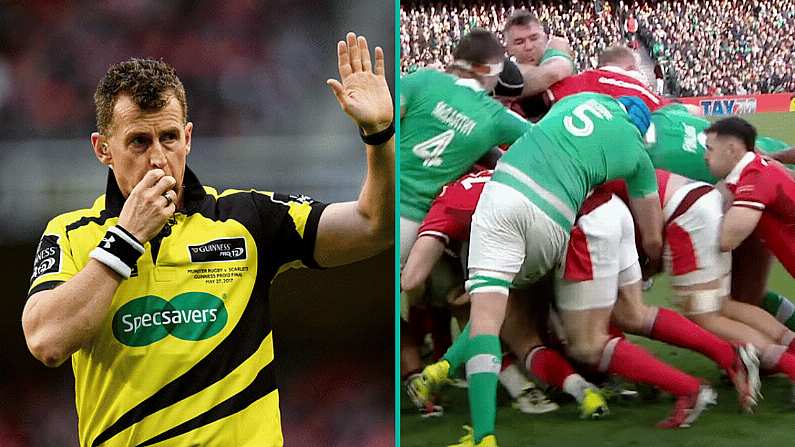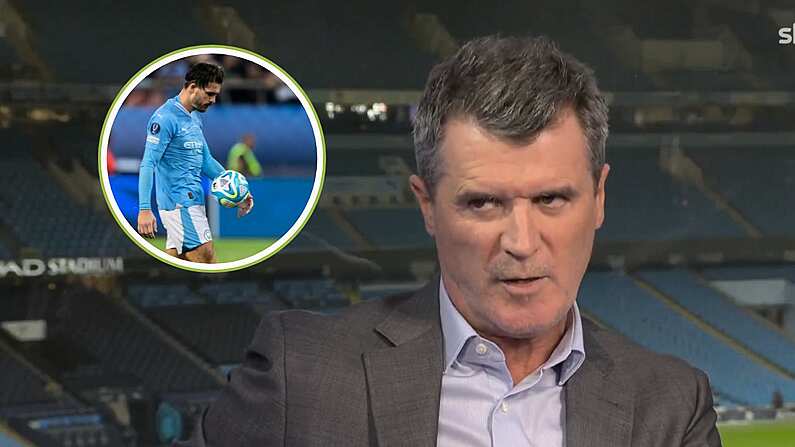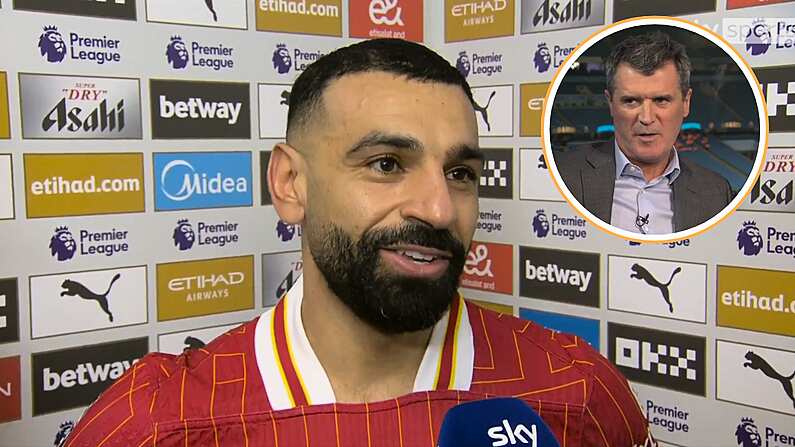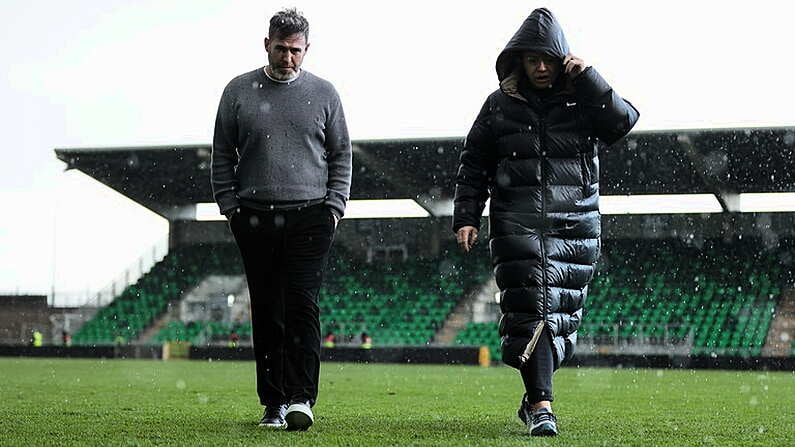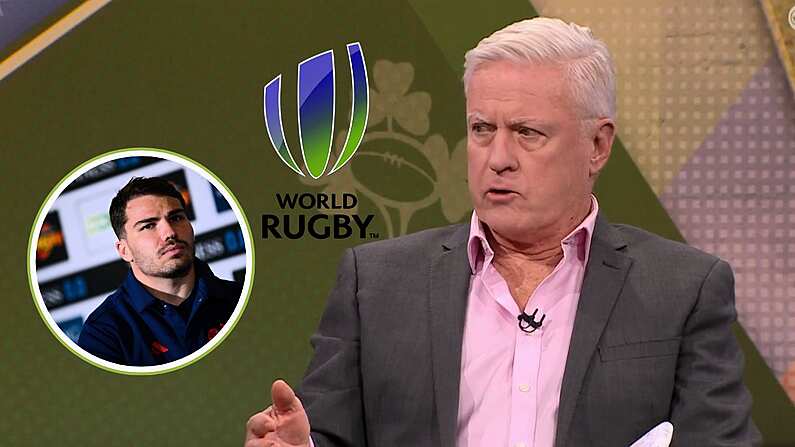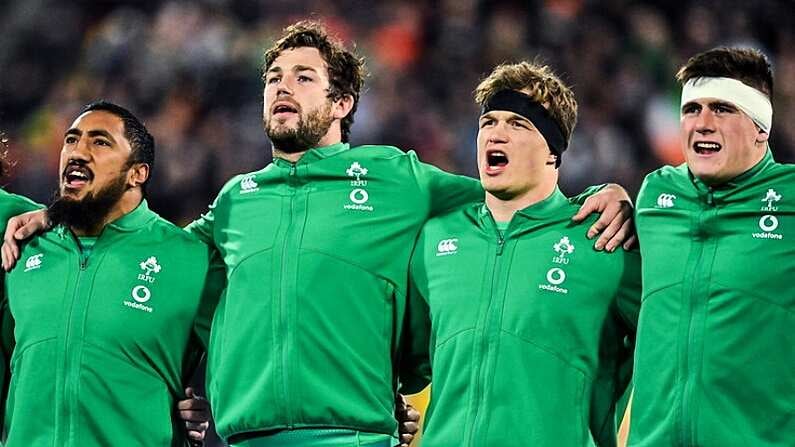The Irish rugby team's defensive play was absolutely immense once again over the weekend, holding Wales to just seven points en route to a 31-7 victory at the Aviva Stadium.
While the Ireland attack has received a huge amount of praise in recent times, you could argue that their defence has been even more impressive. Coming off the back of holding Italy scoreless a couple of weeks previous, they hardly gave Wales a sniff all game.
In fact, the only score they did concede was a penalty try. That came off the back off an attacking maul close to the Irish line, with it being adjudged that Tadhg Beirne brought it down illegally. The Munster man was yellow carded as a result, with the officials feeling that a penalty try should also be given.
Tadhg Beirne has been sin-binned as Wales are awarded a penalty try to leave the scores at 17-7 in Ireland's favour #IREvWAL #SixNations
📱 Updates - https://t.co/yTLOjzwo3W
📺 Watch live - https://t.co/XnOP6grnB7 pic.twitter.com/6dtUck2AN9— RTÉ Sport (@RTEsport) February 24, 2024
Some rugby fans have questioned that decision in the aftermath of the game.
READ HERE: Ireland Could Break Some Impressive Records During Remainder Of Six Nations
Rugby: Nigel Owens explains Wales penalty try vs Ireland
Ireland have had an incredible disciplinary record over the last couple of years. In an age when yellow and red cards are becoming ever more frequent at the top level of rugby, Andy Farrell's side have managed to largely avoid such punishments on the field of play.
However, some feel they were correctly penalised on this occasion.
Speaking on the World Rugby YouTube channel, former referee Nigel Owens gave an in-depth breakdown of why Tadhg Beirne was clearly deserving of a yellow card. As well as that, he hinted that the officials probably made the right call in tacking on a penalty try as well.
A good discussion point here. What you can't do in the maul, you can't unbind and then sort of swim around the side of the maul.
If you look at Tadhg Beirne, he unbinds and goes forward like a swimming action onto another player. That is illegal. By doing that, he causes the maul to collapse.
We do have a penalty, and in a situation close to goal line, we do have a cynical action that caused a maul to collapse, so we do have a yellow card.
The next question is would a try have been scored? A lot of you have been debating this.
Some think that other Irish defenders were there or there were Welsh players under the ball and a try wouldn't have been scored. If that was the case, then it's just a yellow card.
But the officials looked at this and they felt that Tadhg Beirne's actions contributed to what happened, and if that hadn't happened, then Wales probably would have scored. Thus they arrive at the decision of a penalty try.
In simple terms, if you think that Tadhg Beirne's actions prevented a probable try, it's a penalty try. If you didn't, then it's just a penalty and yellow card.
That all seems fair enough, with Tadhg Beirne clearly infringing at the maul on this occasion. You could also argue that Wales were in a great position to score a try before that sequence of play.
While the yellow card had little impact on the rugby game on this occasion, Ireland will be hoping that they can avoid similar situations over the remainder of the Six Nations.

